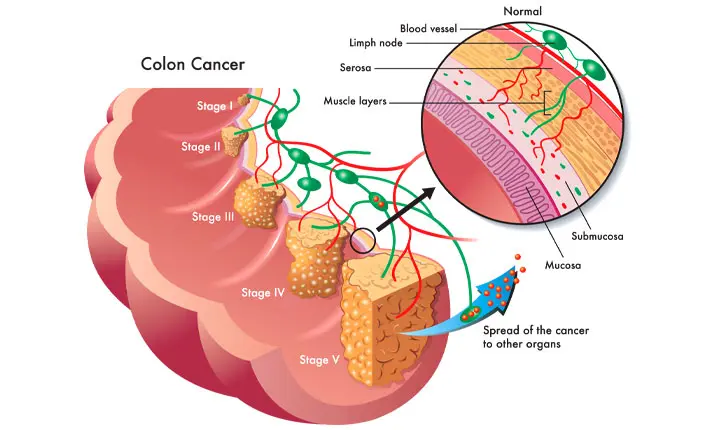A diagnosis of cancer can be frightening, which is why some people, unfortunately, avoid getting screened. However, ignoring the warning signs and delaying much-needed tests can allow the cancer to grow and spread, making it more difficult to treat.
According to the World Health Organization (WHO), approximately 10 million deaths were caused by cancer in 2020. However, an estimated 30 – 50% of cancers can be prevented by avoiding risk factors and taking preventive measures.
A good way to do these things are to make changes to your lifestyle to reduce the risk of developing cancer. This includes avoiding smoking and alcohol, eating a balanced diet, and getting more exercise. Protective measures such as vaccinations against Hepatitis B and Human Papilloma Virus (HPV) can also help to prevent cancers of the liver and cervix.
To support your healthy lifestyle choices, screening is important to detect cancer early, before symptoms appear or even at the precancerous stage. Without screening, some cancers are diagnosed only at advanced stages, limiting treatment options and affecting survival rates.
In this article, we take a look at the most common cancers in Singapore, cancer signs and symptoms you shouldn't ignore, and what screening tests are recommended.
What are the most common cancers in Singapore?
Colorectal cancer
This is the most common cancer among men at 16.3% and the second most common among women at 12.9%. It begins as non-cancerous (benign) growths known as polyps, which sometimes develop into cancer. This process can take several years, allowing time for early detection through one or more screening tests.
Signs and symptoms of advanced colorectal cancer include unexplained weight loss, a change in bowel habits, pain, aches, or cramps in the abdomen, blood in or on your faeces, diarrhoea, constipation, or feeling that your bowel isn't fully empty even after passing motion. Do remember that the early cancer warning signs of colorectal cancer are not going to show, and these symptoms are usually found in patients with late-stage colorectal cancer.
To check for colorectal cancer, a faecal occult blood test (FOBT) looks for signs of blood in the stools. The most commonly used FOBT is the occult blood immunological (OBI). If the test result is positive, a colonoscopy will be recommended to examine the inner lining of the large intestine for polyps and remove them. Those with a negative test result will need to repeat the test annually.
Screening is recommended for those 50 years onwards with no symptoms. For those who have a family history of colorectal cancer, screening should begin at an earlier age.
Breast cancer
Breast cancer is the leading cause of cancer in women in Singapore, at a rate of 29.7%. Approximately 2,000 women are diagnosed each year.
Signs and symptoms of breast cancer include pain anywhere on the breast, change in the size and shape of the breast, lump(s) in the breast or armpit, thickening/swelling in an area of the breast, redness/flaky skin in the nipple area or breast, pain in the nipple area or pulling in of the nipple, discharge from the nipple, including blood (not breast milk).
While 80 – 85% of breast lumps turn out to be non-cancerous, any lumps or irregularities should be investigated to eliminate the possibility of cancer, as early treatment offers the best chances of successful treatment.
In addition to performing self-examination to check for lumps and changes in the breast tissue or skin, the most effective form of screening for breast cancer is to go for a mammogram, which can detect lumps that are too small to be felt during a self-examination. You may then be advised to have a biopsy to check if the lump is cancerous.
Mammograms are recommended once a year for women aged 40 – 49 and once every two years for women aged 50 and above.
Prostate cancer
This is the second most common cancer among men in Singapore at a prevalence of 16.8% and the risk increases exponentially with age. In its early stages, there are no symptoms while symptoms like trouble urinating or blood in the urine usually appear when the cancer is already advanced.
Other signs and symptoms of prostate cancer include a decreased force in urine stream, blood in semen, pain in bones, effortless weight loss, and erectile dysfunction.
Although prostate cancer usually develops slowly, 25% of cases are detected at advanced stages. With screening, those with early-stage prostate cancer have a 15-year survival rate of 90%; in contrast, those with advanced prostate cancer have a 5-year survival rate of only 40%.
Screening for prostate cancer is recommended for men aged 50 years and above or earlier if there is a family history. A prostate specific antigen (PSA) test with high levels usually points towards an enlarged prostate or prostate cancer. Should prostate cancer be suspected, your doctor will recommend a prostate biopsy to remove tissue samples that will be checked for cancer cells.
Lung cancer
There are two main types of lung cancer, which account for 13.5% of cases in men and 7.9% of cases in women in Singapore. They are non-small cell lung cancer (NSCLC) and small cell lung cancer (SCLC).
Signs and symptoms of lung cancer include unexplained weight loss, lethargy (always feeling tired), persistent cough, shortness of breath, wheezing, haemoptysis (coughing up blood), and chest pain.
Almost 8,000 cases of lung cancer were diagnosed between 2014 and 2018 in Singapore, with 85% of cases being NSCLC, which includes adenocarcinoma, squamous cell carcinoma, and large cell carcinoma. The remaining 15% of cases were SCLC, which is more likely to grow and spread quickly.
Screening for lung cancer is performed using a low-dose CT scan, which is advised for those aged between 55 – 74 who have smoked 30 or more pack years*.
*To calculate pack years, multiply the number of cigarette packs smoked daily by the number of years smoking
When should I go for cancer screening?
When it comes to the possibility of cancer, being informed and proactive can help with early-detection of cancers, when treatment is likely to be most effective. This can lead to improved survival rates and a better quality of life, so don't wait for common signs and symptoms of cancer in men and women to appear before you take a cancer screening test.
For peace of mind, learn about the cancer screening packages available, and schedule an appointment.















